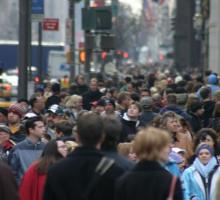About the term “Political Economy”
The term “political economy” was used from the 18 century and until the 19 century, as a synonym of what was understood as economics or economic science during that time, i.e. the study of the relations of production, distribution and consumption of good and services.
With the publication of the book “Principles of Economics” by Alfred Marshall, the term “economics” replaced “political economy”.
Etymologically, the term political economy derives from the Greek words:
- oikonomos: administration of the household
- polis: city or state
Political Economy as a branch of social sciences
Nowadays, there is a discipline called political economy and it’s not a synonym of economy. It is a branch of social sciences that studies the relations between society, state, markets and people. It is the study of the state administration, taking into account economic, political and sociological elements.
Political economics is an interdisciplinary field. By taking into account political and sociological elements, political economy analysis is wider than merely economical analysis. For example, an analysis of the optimal tax rate from a merely economic point of view, will take into account the utility of a model individual, the influence in investment, consumption and economic growth, the fiscal balance, etc.; but political economy will also take into account the pressures of interest groups, political institutions and systems, the mechanisms of public choice, the implementation by government agencies, etc.
Besides the tools of economical analysis, political economics also takes into account:
- political theory
- public choice mechanisms
- interest groups
- political competition
- political institutions and bureaucracy
- collective action theory
- implementation of politics
- sociology elements



